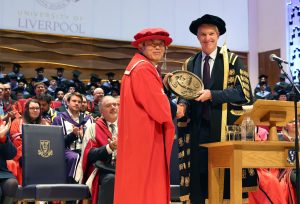Details
- Time: 17:00-18:00
- Date: Wednesday, 28 April
- Venue: HS436
Abstract
Students vary in the degree to which they talk in language classrooms, even under seemingly identical learning situations. Why do some students choose to talk consistently while others choose not to habitually? The answer to this question is encapsulated by the construct of Willingness to Communicate (WTC), which determines individual differences in talking behaviour and is what my study aims to investigate. Specifically, I look at what factors belonging to the individual learner and the classroom context play a part in influencing WTC and how such factors, if any, exert their influence.
This talk is on my PhD thesis, which sets out to investigate Willingness to Communicate (WTC) in Chinese, its mediating factors and their interrelationships embedded in the learner and the classroom context. It adopts a longitudinal qualitative multiple-case study design comprised of six tertiary students learning Chinese as their major in a four-year Scottish undergraduate programme over the course of one academic year. Methodological triangulation is achieved by employing classroom observations, learner self-assessment forms, video-stimulated recall interviews and semi-structured interviews. I present personalised and contextualised accounts of both trait-like and situational factors that trigger or withhold, boost or reduce individual learners’ WTC in a Scottish CFL (Chinese as a foreign language) classroom context. I also demonstrate, from a Complex Dynamic Systems Theory (CDST) perspective, how such factors interplay and contribute to the constant and momentary fluctuation of WTC that leads to individual differences in communication frequency in a classroom setting.
Thirteen themes emerge to impact on the six students’ WTC interdependently over time and across situations, which are categorised under two categories – the individual person and the classroom context. I illustrate how subjective individual variability (individual factors) interacts with objective contextual conditions (contextual factors) and how such interactions take place, evolve and drive the six individuals into speech or inhibit them from speaking up in the CFL classroom. A comparative account of the factors differentiating higher and lower WTC students, as well as Asian and Anglophone students is also included. I then discuss the emergence of WTC in the CFL classroom, drawing on CDST in interpreting its major interactions, based on which a CDST-inspired WTC model specific to the present study is proposed. Lastly, pedagogical implications are provided to hopefully facilitate practitioners to design and cultivate WTC-friendly classes.
Speaker
Qianqian has recently finished her PhD studies at the University of Edinburgh. She now works at the Department of Applied Linguistics at XJTLU as a teaching fellow. Her research interests lie in the field of language education, especially individual differences in second language acquisition including willingness to communicate, motivation, attitude and learning styles. She is particularly interested in the application of Complex Dynamic Systems Theory in understanding classroom reticence, psychological and cultural aspects of foreign language learning and teaching.







